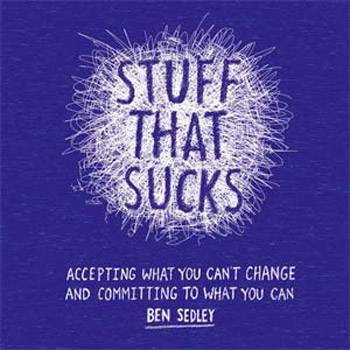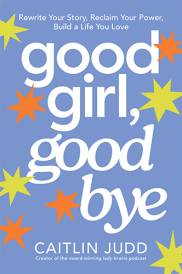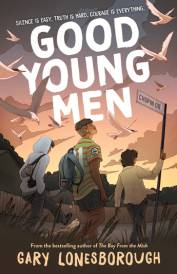Stuff That Sucks

Stuff That Sucks
Accepting what you can't change and committing to what you can.
A beautifully designed and illustrated book aimed at adolescents that will help them deal with painful emotions by drawing on the principles of Acceptance and Commitment Therapy (ACT) and presenting them in ways that are eye-catching and easy to understand.
Each of us has thoughts that are painful at times; sometimes the pain is sadness, sometimes worry or anger of shame or grief or some feeling that you don't even have the words for.
Young people often struggle with their emotions and do not want to be told that -everyone feels like that' or that -you will grow out of it'. Instead, in many cases, it's more useful to validate their emotions and offer a truthful understanding of the pain that they are feeling.
Stuff That Sucks encourages adolescents to accept their emotions rather than struggling against them. It also shows how to reconnect with what is really important, giving teens the tools to help clarify their personal values and take steps towards living a life where those values can guide them in their day-to-day behaviour.
Jargon-free and full of illustrations, Stuff That Sucks is an accessible and approachable guide to painful emotions.
Ben Sedleyis a clinical psychologist and ACT therapist with experience of working with children, adolescents and families facing mental health difficulties in both primary health centres and community mental health teams in New Zealand and the UK. Ben's training and practice has focused on examining children and young people's understanding of mental health, which has helped guide him on the best ways to explain mental health concepts and ACT to young people. Ben lives in Wellington.
Stuff That Sucks
Murdoch Books
Author: Ben Sedley
ISBN:
RRP: $24.99
Interview with Ben Sedley
Question:What inspired you to write Stuff That Sucks?
Ben Sedley: I have been using Acceptance and Commitment Therapy for years. It is what helps me when I'm struggling with painful thoughts and emotions, and it seems to make sense to many of the young people I work with in my psychology practice. So I decided to share some of my ways of explaining these ideas in a way that allows readers to feel validated and respected.
Question:Why is the first step to change accepting what you can't change?
Ben Sedley: The first step is to breathe in. Notice all the stories your mind is telling you and be aware of all the emotions bouncing around inside you. Then breathe out. Notice that even when your mind is saying you can't tolerate these mean thoughts and painful feelings, your experience is telling you that there is room inside you for them. You are able to hold these things, even if you wish you didn't have them. And if you don't have to struggle against them, then that frees up a whole lot of energy to committing to things you care about.
Question:What should we commit to change?
Ben Sedley: The challenge for every human is to figure out what we each care about and then care about it. What is one thing I can do today to make me feel like I have taken a step closer to be living the meaningful vital life I want to live? It doesn't matter if it's a big step or a tiny step, as long as it is in the direction of the Stuff that Matters, the things I care about. It could be doing one more thing to be the kind of friend I want to be, or the kind of family member I want to be, or the kind of human I want to be or something else that really matters to me.
Question:What are your top tips for parents who have teenagers struggling with their emotions?
Ben Sedley: Listen.
Listen some more.
Create opportunities where your teen might talk.
If they start talking, be ready to listen.
Don't problem solve or give advice unless they specifically ask. Just keep listening, acknowledge that you can hear their pain and that you care.
Living with all emotions is part of being a human, you can't protect your teen from that. But you can be available to sit with them as they experience them. By not rushing in to tell them to 'cheer up' or 'stop worrying' or telling them what to do, you are teaching them that you believe in them, you don't see them as broken or wrong for having these feelings, but instead as human as the rest of us.
Question:Why did you include illustrations in Stuff That Sucks?
Ben Sedley: I always knew that the book needed to look great, with lots of thought going into the design and illustration. So many self-help books look like the design was an afterthought. However, the team at Open Labs Studios at Massey University, in Wellington, New Zealand have put together a book design that far exceeds my wildest expectations, and their illustrator Kalos Chan has just captured what it feels like to struggle with emotions so well.
MORE





